Selection and Application of Accessories for Smart Variable Air Volume (VAV) Diffusers
The Royal Service Smart Variable Air Volume Diffuser (SVAD) is a low-pressure drop terminal device in variable air volume (VAV) systems. In addition to its fundamental function of space temperature regulation through airflow modulation, this terminal unit can be equipped with optional accessories to achieve extended functionalities.

The SVAD offers a range of optional accessories to expand its functionality. Below is a detailed analysis of available accessories, selection criteria, and their added functionalities:
1.Electric Heater Element
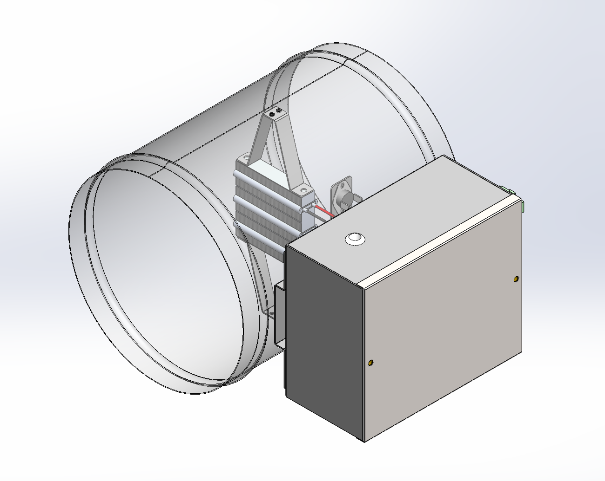
Electric Heater Element Control and Functions
It use PTC type electric heater with single-stage control.
The electric heater is energized when the room temperature deviates 3°C below the setpoint (default value).
The reheat activation differential is field-adjustable within a range of 0–5°C.
The application of Electric Heater Element
Typically utilized in spaces with low cooling loads and stringent requirements for minimum ventilation rates and fresh air supply, such as conference rooms.
It ensures compliance with ventilation standards and maintains adequate fresh air volume while preventing overcooling in the room.
2.CO₂ Sensor
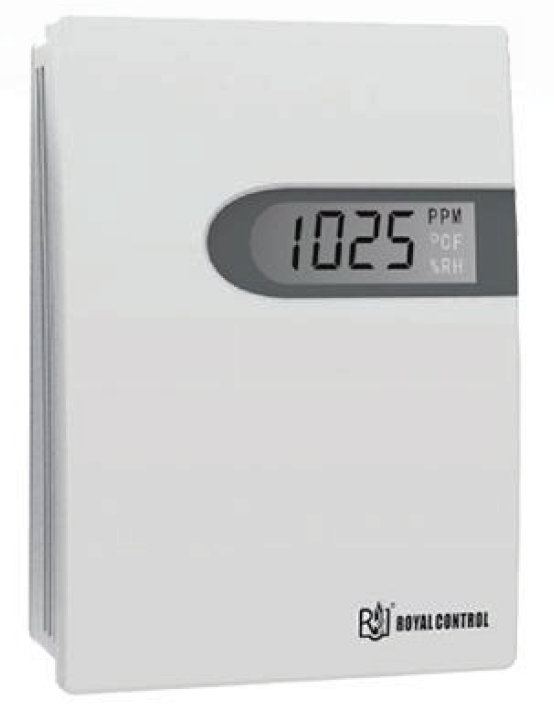
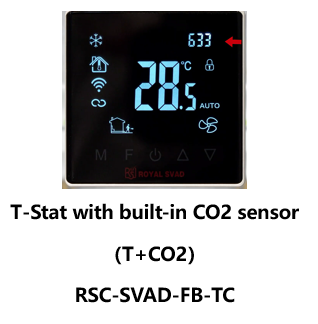
Specifications for External CO₂ Sensor:
Power Supply: DC24V
Output Signal: 0-10V
Measurement Range: 0-2000ppm
CO₂ Sensor Control and Functions
Real-time Monitoring
CO₂ concentration values can be read and displayed in real-time via:
Building Automation (BA) systems
Thermostat panels
Mobile apps
CO₂ Concentration Control
The room CO₂ concentration control function can be activated, allowing users to set target CO₂ levels through:
Thermostats
Mobile apps
BA systems
Dual-Control Logic (Temperature + CO₂)
When the CO₂ control function is enabled, the SVAD system adopts a hybrid control strategy combining room temperature and CO₂ concentration:
If CO₂ < Setpoint: SVAD operates based on room temperature.
If CO₂ > Setpoint: SVAD is controlled based on the CO₂ concentration value.
Applications of CO₂ Sensors
Designed for spaces requiring CO₂ concentration control and indoor CO₂ monitoring.
Compatible with SVAD terminals in variable air volume (VAV) systems for demand-controlled ventilation.
3.Air Flow Sensor

Function of Air Velocity Sensor
Capable of reading actual supply airflow rate from SVAD and transmits real-time airflow data to the Building Automation (BA) system.
Applications of Air Velocity Sensors
Applicable to spaces requiring supply airflow monitoring and volumetric air charging.
4.Relative Humidity Sensor

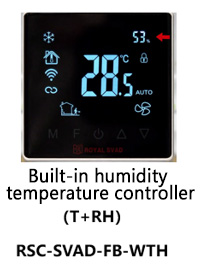
Specifications for External Relative Humidity Sensor
Power Supply: DC 24V
Output Signal: 0–10V
Measurement Range: 0–100%
Function of Relative Humidity Sensor
Enables real-time reading and display of room relative humidity values on BA systems, thermostat panels, and mobile apps.
Application of Relative Humidity Sensors
Suitable for spaces requiring indoor relative humidity monitoring and BA system-controlled humidity regulation.
5.Occupancy Sensor
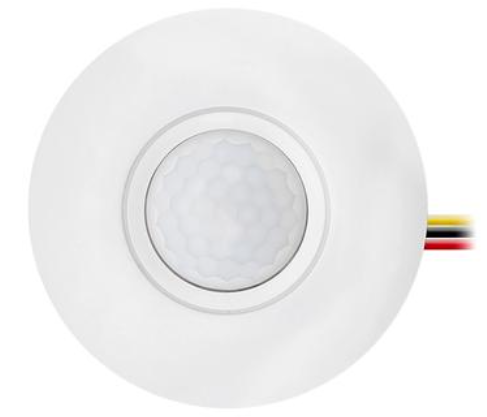
Power Supply Requirements for Occupancy Sensor: DC 24V/5V
Control and Functions of Occupancy Sensor
Automatically activates Occupied or Unoccupied mode by detecting indoor presence.
Occupied Mode: The SVAD operates at the set temperature and can be interlocked to turn on the room lighting.
Unoccupied Mode: The SVAD operates at a setback temperature that deviates by 2°C from the set temperature.
In cooling mode, the effective set temperature is 2°C higher than the panel set temperature; in heating mode, the effective set temperature is 2°C lower than the panel set temperature. Additionally, it can be interlocked to turn off the room lighting.
Applications of Occupancy Sensor
Suitable for locations where automatic switching between occupied and unoccupied modes based on room occupancy is required, as well as for automated control of room lighting.
